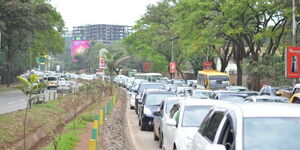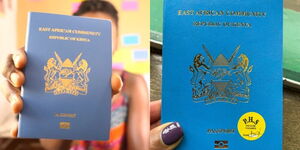Principal Secretary Karanja Kibicho has faced criticism from a section of Kenyans after he announced that one of the qualifications for the Kazi Mtaani Initiative was that one needed to be "able-bodied".
On his Twitter page, Karanja stated; "To qualify for Kazi Mtaani Initiative launched yesterday across all the 47 counties, you must be able-bodied and aged between 18-35 years, have a national ID Card or valid Kenyan passport, and a verifiable mobile phone number."
His specification for "able-bodiedness" was not taken well by Kenyans among them nominated MP David ole Sankok who asked the PS to apologise.
He added that he would take up the matter with president Uhuru Kenyatta if the PS did not offer an apology.
"Please sir, withdraw and apologise before I report you to our President who is the only president in the world who has come out as an advocate for disability rights," Sankok stated in a response to Kibicho.
Sankok argued that persons living with albinism and those with hearing impairment could do some of the jobs being offered by the initiative.
Elgeyo Marakwet Senator Kipchumba Murkomen also weighed in on the matter, asking the PS if persons living with disability were described as not being able-bodied.
The Kazi Mtaani initiative will see more than 270,000 Kenyans absorbed in the national programme with a Ksh10 billion budget as announced by President Uhuru Kenyatta.
The program is expected to be overseen by the County Implementation Committees (CICs) and will be led by respective County Commissioners, County Secretaries as deputy chairs, and County Directors of Housing serving as secretaries to the CICs.
“The Kazi Mtaani national technical committee has prepared robust works plans that will see more than 270,000 Kenyans earning a Ksh455 daily wage and engaged in more community and infrastructure development projects,” State Department of Housing and Urban Development Principal Secretary Charles Hinga stated.
He added that the objective of the program is to provide social protection for workers whose daily income had been disrupted by the containment measures issued to combat the spread of Covid-19.












